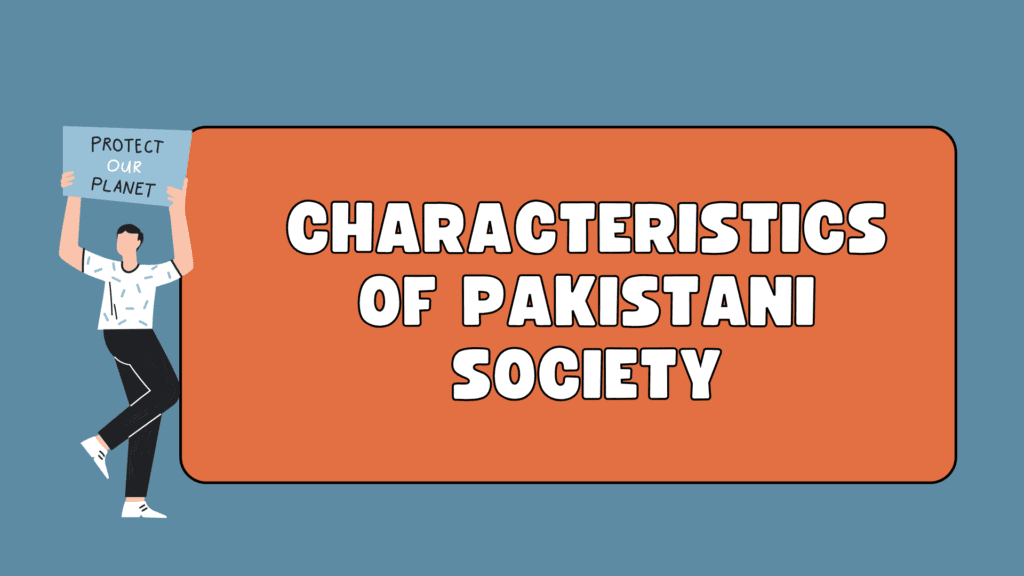Religion is a powerful part of life in Pakistan. Around 96% of Pakistanis are Muslims, and Islam shapes their daily routine, moral values, and laws.
Religious Practices
-
Five Daily Prayers (Salah):
Most Muslims in Pakistan perform these prayers regularly. In cities like Peshawar or Quetta, you can hear the call to prayer (Azaan) five times a day from mosques. -
Ramadan and Eid:
Fasting in Ramadan is taken seriously. During this month, even restaurants close during the day in respect of those fasting. Families gather at iftar (meal to break the fast) every evening. After Ramadan, Eid-ul-Fitr is celebrated with new clothes, food, and visiting relatives.Example:
In Rawalpindi, entire markets light up during Eid. People buy bangles, henna, and gifts for family and neighbors. -
Hajj and Charity:
Many people save money for years to go on Hajj (pilgrimage). Zakat (charity) is given to the poor during Ramadan and other times.
Role of Religious Leaders
-
Imams lead prayers in mosques and guide the community.
-
Religious scholars are invited on TV shows, especially during Islamic months, to explain religious matters.
-
In villages, the mosque is not just a place to pray but also a center for announcements, community meetings, and religious education.
Religion in Public Life
In Pakistan:
-
Fridays are considered holy, and most offices close early.
-
Islamic studies are a part of the school curriculum.
-
Laws like blasphemy laws and family laws are based on Islamic principles.
-
Even in politics, leaders often mention religion in their speeches to connect with people.
Example:
In a political rally in KP, a leader may quote Islamic history to gain public support.
Islamism as a Part of the Religious Institution in Pakistan
Islamism refers to the idea that Islam should guide not just personal life but also laws, politics, and society. In Pakistan, Islamism is a major influence on how the country is run and how people live.
-
Constitutional Role
-
Pakistan’s official name is the Islamic Republic of Pakistan.
-
The laws are influenced by Islamic teachings, such as family law, inheritance, and moral behavior.
Example: Interest (riba) is discouraged in Islamic banking systems.
-
-
Political Influence
-
Some political parties promote Islamic values in governance.
Example: Jamaat-e-Islami promotes education based on Islamic principles.
-
-
Islamic Education
-
Religious content is taught in schools and madrassas (Islamic schools).
Example: Students learn Quran and Hadith alongside regular subjects.
-
-
Daily Life Regulations
-
Public behavior, such as modest dress and gender interactions, is guided by Islamic principles.
Example: In many areas, separate seating is arranged for men and women at public events.
-
-
Legal System
-
Shariah courts exist for dealing with certain religious matters like marriage and divorce.
Example: A couple may go to an Islamic court for divorce according to Islamic law.
-
Islamism in Pakistan affects how people think, vote, study, and live. It connects the state with religion and shapes the overall culture of society.
Other Religions in Pakistan
Christians
-
-
Live mostly in Punjab.
-
Run schools, hospitals, and do charity work.
-
Celebrate Christmas and Easter.
-
Example: Convent schools in Lahore.
-
Hindus
-
-
Live in Sindh (Tharparkar, Umerkot).
-
Work in farming and business.
-
Celebrate Diwali and Holi.
-
Example: Hindu farmers celebrate with Muslims in Sindh.
-
Sikhs
-
-
Found in Punjab and KP.
-
Maintain gurdwaras and promote peace.
-
Example: Sikhs visit Nankana Sahib on Guru Nanak’s birthday.
-
Parsis (Zoroastrians)
-
-
Mostly in Karachi.
-
Active in business and charity.
-
Example: Support education and hospitals.
-
Others (Baháʼí, Buddhists, etc.)
-
-
Small groups focused on peace and education.
-
Example: Buddhist heritage in Taxila.
-
Learn more about Social Institutions via Societyopedia!


